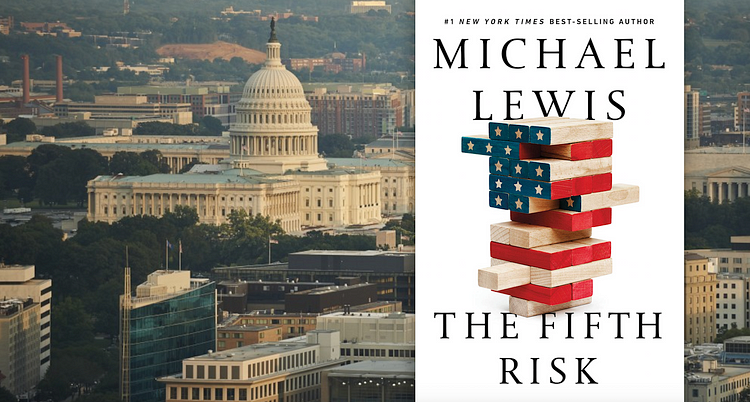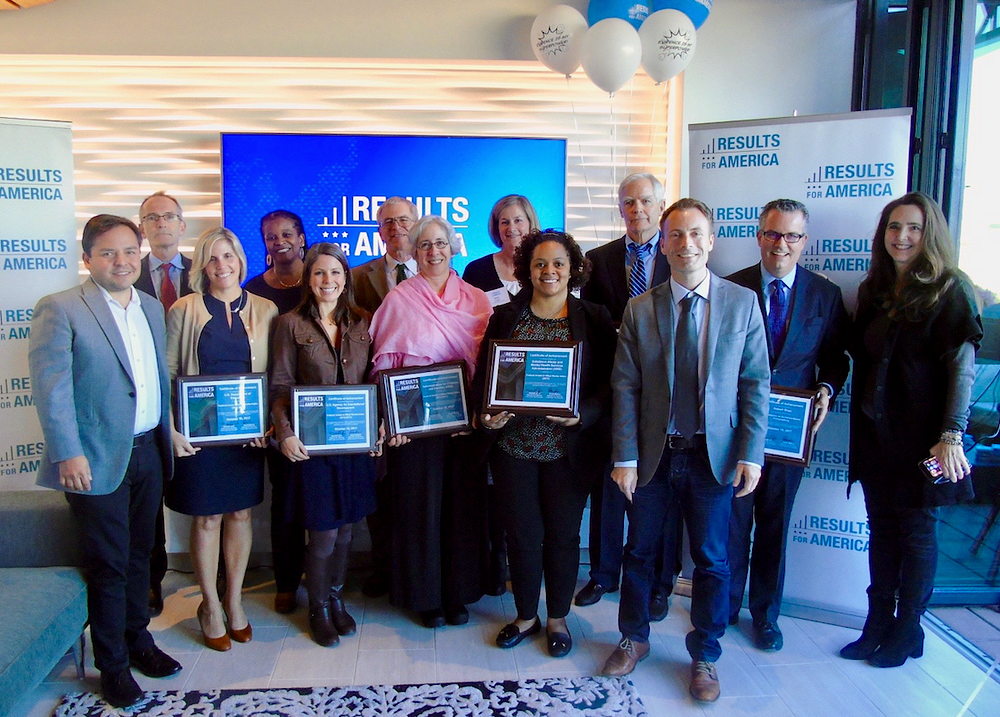Less than two weeks out from the midterm elections, when the mud practically oozes off our TV screens from all the political attacks, it’s easy to be pessimistic about our elected leaders and government as a whole.
If you need a break from the ugly tribal politics of 2018, turn off your news feed for a moment and order a copy of Michael Lewis’ terrific new book, “The Fifth Risk.”

At Results for America, whose mission is to help policymakers harness the power of evidence and data to solve our toughest challenges, we have long been big fans of Lewis, who the New York Times rightly calls the “poet laureate of computer-driven data analysis.” His “Moneyball” book about how data transformed Major League Baseball inspired our bipartisan “Moneyball for Government” campaign to convince more of our nation’s leaders to adopt an evidence-based approach to governing.
At first glance, “The Fifth Risk” doesn’t seem like a book that will rekindle your trust in our democratic institutions. In fact, Lewis’ detailed reporting on a deeply flawed Presidential transition — in which the “Landing Teams” for the new Administration expressed little interest in learning about the missions of agencies that, for example, help prevent nuclear Armageddon — should give every American night sweats.
But as you make your way, chapter by chapter, through this thoroughly enjoyable book, you’ll meet an incredible group of evidence and data superheroes who (at least momentarily) will restore your faith in government and the men and women who are drawn to public service.
There’s Kevin Concannon, a former U.S. Agriculture Department official who quietly worked to reduce fraud and help millions of children and families get the nutrition they need. There’s John MacWilliams, a former investment banker, who as the Department of Energy’s first-ever Chief Risk Officer spent his days trying to prevent nuclear accidents and attacks on the nation’s power grid. There’s DJ Patil, who fought to make government data available to the public as the first U.S Chief Data Scientist. And there’s Kathy Sullivan, a former NASA astronaut, who as National Oceanic and Atmospheric Administration (NOAA) Administrator led a crusade to use improved weather forecasting and behavioral science to protect Americans from tornadoes and other deadly weather events.
There’s another hero in this story: government data. In Lewis’ expert telling, the vast pool of data the government collects is a vital and under-appreciated tool in the fight against opioid abuse, income inequality, climate change, racial bias in policing and much more.
In our work with career civil servants at agencies overseeing more than $220 billion in federal investments, we are meeting more and more of these evidence and data superheroes — leaders who are gathering data, sharing it, and using it to evaluate the effectiveness of federal programs. At the state level, we are seeing more Governors and agency leaders who are using evidence as their “North Star” in policymaking. And through our work with the more than 100 cities participating in Bloomberg Philanthropies’ What Works Cities’ initiative, we are seeing a growing movement of local leaders who are using data and evidence to improve services, engage the public, evaluate progress, and invest in “what works.”

They all recognize that evidence and data can be a superpower, and are using it for dramatic good.
There are many good reasons for Americans heading into the November 6 elections to be cynical. Our government too often is broken, feckless and rigged in favor of powerful special interests. Some of our leaders are corrupt, inept or worse. Too often decisions are still being made without regard to data, evidence and science.
But we shouldn’t allow ourselves to become too jaded. We shouldn’t forget what government has helped us accomplish over the last century, from drastically reducing elderly poverty rates through Social Security, to funding the research that created the Internet, to eradicating deadly diseases like smallpox, to driving the teen birth rate to historic lows through improved access to contraception and better teen pregnancy prevention programs.
And we shouldn’t stop striving to make our government better.
The last chapter of Lewis’ book — where a massive tornado is barreling down on Elk City, Oklahoma, and federal meteorologists are racing to get out the earliest possible warning to residents — reminds us of why our government matters. It reminds us of why we invest in science and data collection. And most important, it reminds us of the heroism of the men and women in our government who keep us safe from harm.
Michele Jolin is the CEO and Co-Founder of Results for America.